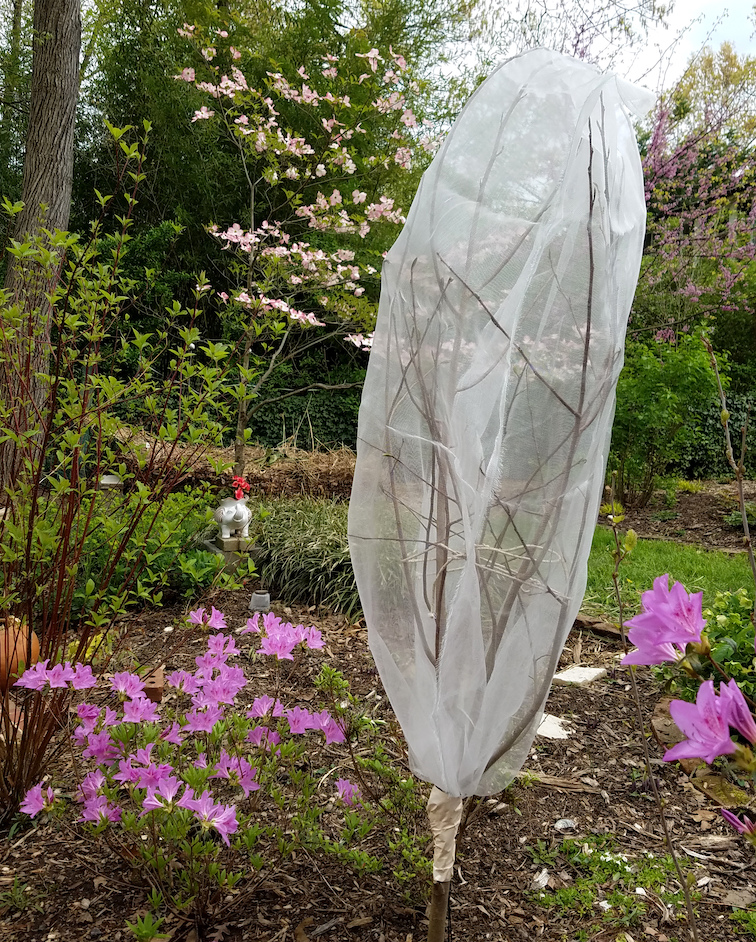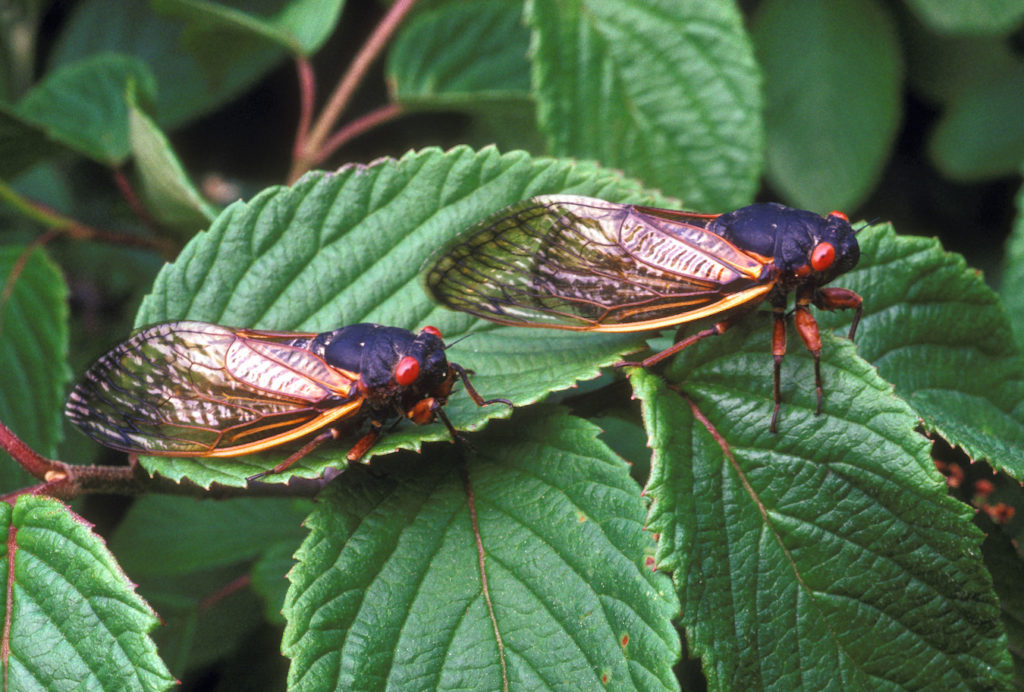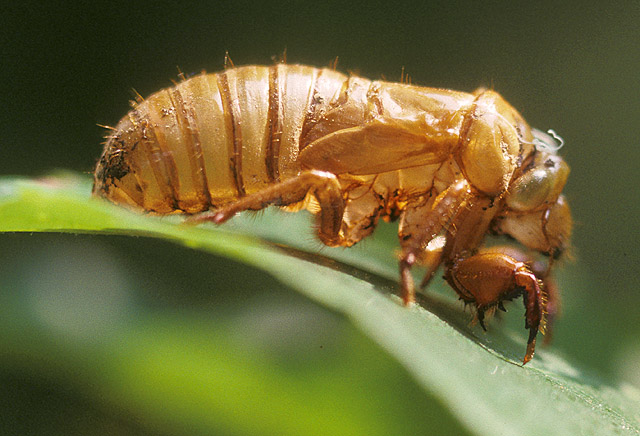That is not a lawn mower or a chain saw you are hearing, but the sound of millions of cicadas known as Brood X returning after a 17-year hiatus. “Male cicadas will produce a mating call at 100 decibels, the level of a lawn mower or a jet engine flying overhead,” said Kevin Carpenter-Driscoll, the Greenbelt Public Works environmental coordinator.
Brood X cicadas are known as periodicals, not to be confused with the dog-day or annual cicadas that are here every summer. Brood X will emerge this spring as the ground warms, making their appearance in May, after spending 17 years underground gnawing on tree roots as nymphs. Once the cicadas emerge from the soil, they will crawl up tree trunks, posts and other upright structures, shed their skins and become winged adults.
A Job to Do
At this stage of their lives, they do not eat and focus entirely on reproduction. Female cicadas lay their eggs on the branches of trees with the eggs hatching in six weeks. The adult cicadas die after mating or laying their eggs. The young nymphs, once hatched, drop to the ground and burrow into the soil to live underground for the next 17 years. By emerging in masses every 17 years, the cicadas can overwhelm their enemies, ensuring that many cicadas will survive. “The cicadas provide a huge influx of protein for wildlife populations,” Carpenter-Driscoll told the News Review. “Everything from raccoons, opossums, squirrels, frogs, birds and so forth will gorge themselves for a few weeks.”
Cicada Concerns
Cicadas do not bite or sting, but they are loud. They generally do not damage trees but may injure newly planted trees or shrubs when the females make small slits on their branches to lay their eggs. “They may accidentally bump into you – that is because they are mostly blind and not very good at flying,” explained Carpenter-Driscoll. He went on to say, “Residents should take the time to enjoy this natural phenomenon that only occurs on the East Coast. They can even partake in cicada cook-offs!”
Don’t Use Insecticides
Gardeners may want to consider delaying planting trees or shrubs until July, after the cicadas are gone. Young trees can be protected with insect netting sold in most garden centers. Decomposing cicadas could cause problems in ornamental ponds due to oxygen depletion in the water. Covering the ponds with screening and skimming the surface during cicada emergence should keep the ponds safe. Insecticides should not be used, having been reported as ineffective and posing a risk to people, pets, beneficial insects and birds. For those who are cicada enthusiasts, more in-depth information can be found at cicadamania.com and cicadacrewumd.weebly.com.



